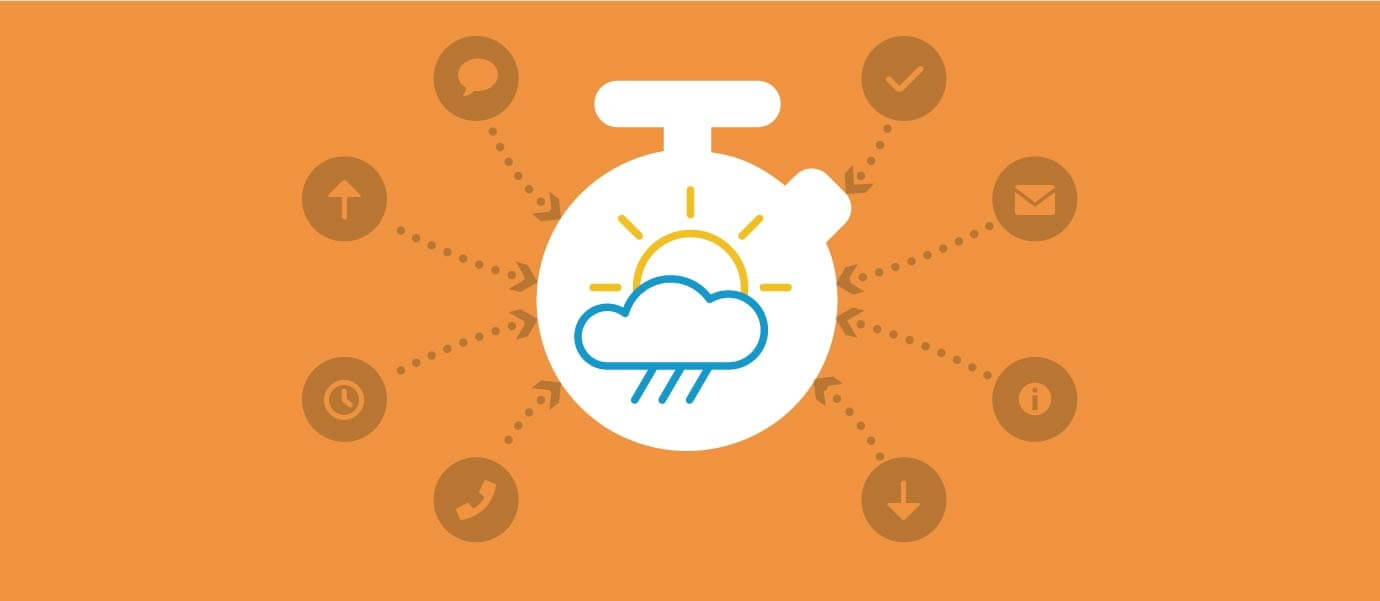Today's guest post was written by Steve Giusti, the Vice President, Corporate Controller, at Xactly Corporation. Xactly is a leading provider of enterprise-class, cloud-based, incentive compensation solutions for employee and sales performance management.
If you're not in Finance or Sales, the first thing you might think when you hear the word "forecast" might have to do with sunny skies or scattered showers. But the forecasts we're talking about today have much greater repercussions when they are not accurate. Sure, people might lament that the weatherman predicted a weekend of sunshine when their camping trip is unexpectedly rained out, but those mistakes have few financial consequences. When we're talking about a business' financial and sales forecasts, accuracy and predictability are the magic, critical words. I've never met a CFO who's OK with being surprised by unexpectedly high compensation expenses. With best practices, analytics, and automated solutions, there is no longer a reason to have inaccurate sales forecasts. Below are three ways to enhance yours:
1. Ask the Important Questions
You can begin by asking important business queries and answering them honestly. In a recent CFO Thought Leader podcast, Xactly's CFO Joe Consul described the important questions he had to ask when building up the FP&A function within our company. "Test your forecast model from P&L all the way down through your balance sheet and cash flow statement," he said. He added that it's critical to ask pertinent questions like: "Do we completely understand our business? Can we forecast it? Was the balance sheet solid and uncontroversial? Do we have a solid team in place?" If your sales reps are entering into new markets, you should also be able to answer questions regarding what product mix you're aiming for and if you're on top of your hiring goals. If not, you may not have enough reps to move the products you want sold.
If you can't answer these questions on your own, reach out to colleagues in other departments to help so you can give accurate information to your company's board of directors, set purposeful sales quotas, and build strategic and effective incentive comp plans.
2. Incentivize Sales Forecast Accuracy
Speaking of incentives, it's also possible to incentivize sales forecast accuracy. You know that forecasting is critical to the bottom line of your business, but other people within the organization may not have fully bought into its importance. Putting a dollar amount on it for each individual employee that touches the forecasting process can add an extra emphasis on the importance of accuracy. Are you at a loss for what to incentivize? The accuracy of ARR, revenue retention, sales force productivity, and marketing spending numbers are all good places to start.
3. Get a Better View into Future Expenses
A lot of finance leaders out there would probably like a window into the future so they could be assured that their forecasts were accurate. While we can't quite give you a ride in the DeLorean, you can eliminate surprises and achieve earnings-per-share and sales forecast accuracy. Our solution helps you reach this goal with the ability to create "what-if scenarios" that project your comp costs depending on how your sales people perform.
Alleviating the risk of unforeseen expenses, closing books accurately and on time, and making more strategic choices around compensation plans is now completely within every finance leader's grasp. With best practices, analytics, and automated solutions, inaccurate sales forecasts can become a thing of the past. Do you have other tips for better sales forecast accuracy? Tweet @Xactly or @Clarihq and let us know!


